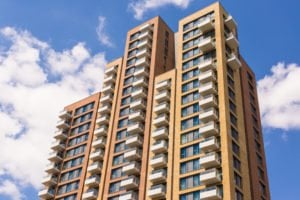WOBO recognises the benefit of “Personal Emergency Evacuation Plans (PEEPs)” and acknowledges the implications.

Disagreement has broken out over the role of personal emergency evacuation plans for people with disabilities or limited mobility in high rise residential blocks.
The report of phase 1 of the Grenfell Tower inquiry recommended that personal emergency evacuation plans (PEEPs) are required for all vulnerable residents of high rise blocks. In its response to its own fire safety consultation, the Government proposed to have details of any residents requiring assistance to evacuate made available to their local fire and rescue service and to place such information in a premises information box, but limited the requirement of PEEPs to residents only of higher risk buildings with a waking watch in place.
 In a legal challenge to the Government’s failure to implement the inquiry’s recommendation for all those needing assistance to evacuate, the family of Sakina Afrasehabi, a disabled woman who along with her sister Fatemeh Afrasiabi was killed in the fire, forced the Government to agree to run a further consultation specifically on PEEPs, to pay the family’s legal costs, and to disclose notes and minutes of a special interest group meeting held under the auspices of the Fire Industry Association (FIA) on 22 April 2020. The cross-industry group was set up to advise the Home Office on the implementation of the inquiry’s recommendations.
In a legal challenge to the Government’s failure to implement the inquiry’s recommendation for all those needing assistance to evacuate, the family of Sakina Afrasehabi, a disabled woman who along with her sister Fatemeh Afrasiabi was killed in the fire, forced the Government to agree to run a further consultation specifically on PEEPs, to pay the family’s legal costs, and to disclose notes and minutes of a special interest group meeting held under the auspices of the Fire Industry Association (FIA) on 22 April 2020. The cross-industry group was set up to advise the Home Office on the implementation of the inquiry’s recommendations.
The notes of the meeting, chaired by a Home Office representative and seen by IFSEC Global, make clear that participants were sceptical on the wholesale use of PEEPs for people with disabilities in high rise residential blocks. They said this was “completely impracticable and not doable,” as such buildings do not have the staff available to assist with evacuation……..

Fire risk assessment code of practice suspended
In another development, BSI has suspended its fire risk assessment code of practice for housing, PAS 79-2: 2020, in response to threatened legal action by the same family.
The code of practice makes no recommendation for the provision of PEEPs for disabled people, and states that it is “not normally practicable” for fire risk assessments to identify people with disabilities or for residential landlords to “make provision for their evacuation in a fire”. In a statement last month, BSI said the suspension of the code of practice is pending a further review, as new information about PEEPs has emerged from the Grenfell inquiry and the Government’s response to it.
“The Steering Group, which is made up of experts in fire safety, fire risk assessment and the housing sector, will reconvene and have the opportunity to take them into account before reaching consensus on the guidance and recommendations in the code. As part of this, the Steering Group will also re-visit points raised during the public consultation relevant to persons with a disability, and it intends to further consult with experts in this field.”
